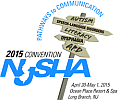Hearing Loss and Cognitive Decline: A Public Health Perspective
Friday, 8:45am to 10:15am
Seabright
Session 32
Age-related hearing loss is such a typical part of the aging process that its importance is often down-played. However, a growing body of epidemiological evidence suggests strong and independent associations between age-related hearing loss and cognitive decline. These associations are likely mediated through effects of hearing loss on cognitive load, social isolation and increased atrophy and structure changes in the brain. If in fact, age-related hearing loss contributes to mechanistic pathways that result in poorer cognitive function, then it follows that treating hearing loss may mitigate the influence of age-related hearing loss on cognitive decline. Currently, we are investigating the impact that treating hearing loss has on cognitive decline. In addition, we are testing innovative community-based hearing interventions that aim to increase the affordability and accessibility of hearing health care for populations of older adults who are most at risk for the negative impacts of hearing loss on healthy aging. Given the associations between hearing loss and cognitive decline, there is an increased significance of treating age-related hearing loss that goes beyond improved speech communication. With a majority of older adults affected by age-related hearing loss and less than a quarter of those adults accessing hearing rehabilitative care, we must look to public health approaches to reach more adults and enhance healthy aging.
Track:
Adult
